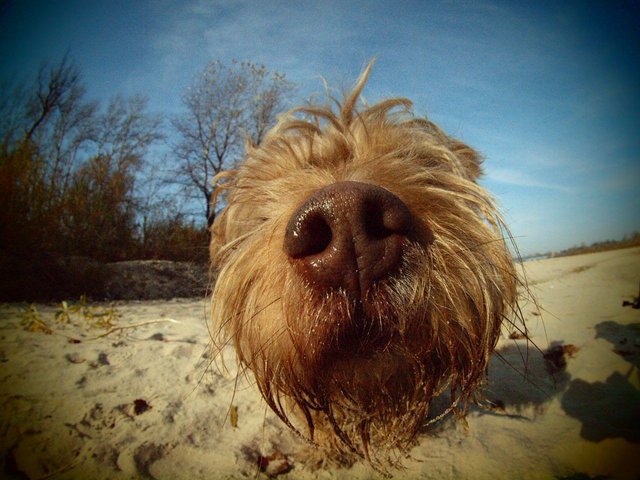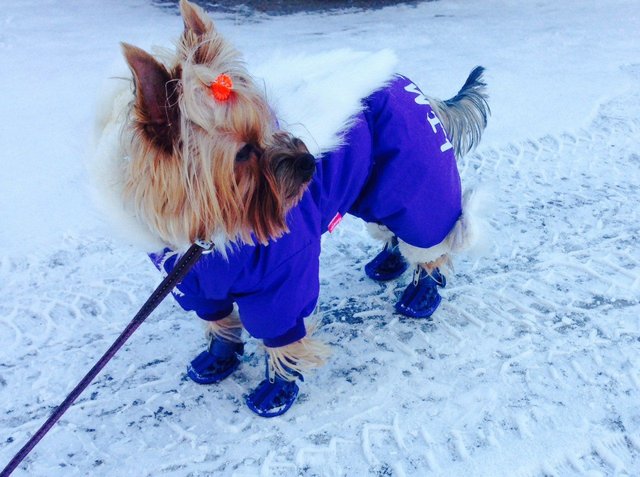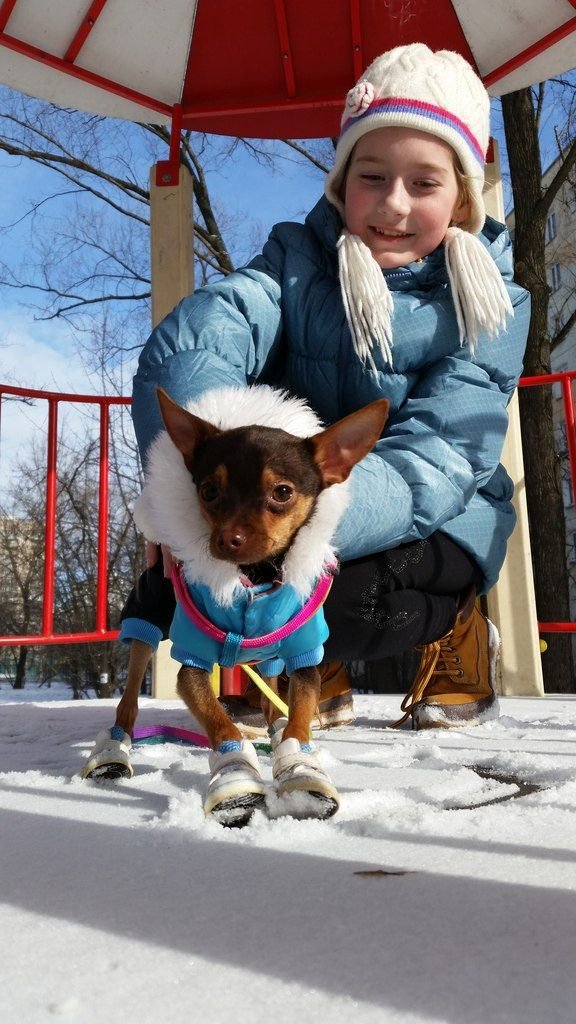Winterize your dog?

I just got back from putting my snow tires on my car, and loading it up with all the gear that I carry in the car in order to be winter-prepared. As I was waiting for my tires to be put on, I got to thinking about winterizing for my dogs. I live in snow country, and although my dogs are mostly indoor dogs, they too need a little extra attention as the temperatures get colder and the snow piles up. Things to consider when “winterizing your dog”

1. A number of factors come into play as the temperature drops. Is your dog normally an outdoor dog? How much time does your dog spend outdoors? If you dog is normally an outdoor dog, make sure that they have adequate shelter. Make sure their shelter is warm, dry and comfortable. Keep it raised off the ground. Make sure your dog has adequate water and that the water is prevented from freezing. If your dog is both and indoor and outdoor dog, take in consideration the age of the dog, their temperment, how familiar they are with the cold and snow and don’t forget although it may not seem that cold out, wind chill can significantly effect the temperature.
2.. Dogs need extra food during the colder months especially if they spend time outdoors. They burn more calories to keep warm so feed them a little extra if they spend time outdoors.

3. Dogs can get frostbite just like humans. Especially susceptible are the ears, nose and paws. Monitor time spent in freezing temperatures to ensure your dog doesn’t get frostbite.

4. If you keep your dog in the garage, beware of rat and mouse poisons, poisoned rodents, and especially anti-freeze. Anti-freeze has a sweet taste that dogs like and is almost always deadly if ingested.
5. Walks are good for your dog any time of the year, and winter is no exception. Take special care to remove snow that can build up on your dogs paws and cause pain and discomfort. After your walk, clean any caked on snow from your dogs paws and if you are in an area where salt or deicing chemicals are used, rinse your dogs paws with warm water. Salt and chemicals on paws and cause irritation and cracking. If your dog licks at his or her paws, salt and chemicals can irritate their mouth and or make them ill.

6. Winter means heated houses which can dry out your dogs skin. I find that one of my dogs get dandruff during the winter months. Know that the heat that warms your house may also dehydrate your dog. Have plenty of fresh water available. To combat dry skin I feed my dogs two fish oil capsules once a day. One of my dogs loves them and eats them right out of her bowl along with her regular food. My other dog picks them out and leaves them behind so I have come to puncture the capsules with a knife and squeeze the oil over her food. Either way it has done wonders for their coats and probably their health too. Another remedy for dry skin is to use olive oil, but I like the additional benefits of fish oil.
7. We can’t talk about cold and our dogs without touching on specialty clothing to keep them warm. Sweaters are a good solution for smaller and older dogs to keep them warm so that they can still enjoy getting outdoors. Booties are a good solution to keeping your dogs feet dry and free from snow build up as well as keeping their paws free from salt and other chemicals used to melt snow on streets and walkways.

We love our dogs and want them to enjoy all that the 4 seasons have to offer. Just like we winterize our houses and our cars, we must winterize our dogs to keep them healthy and happy all year long.